14 Jul Our China Tea Trip: Not What We Expected
I don’t think there is a country on the planet that takes tea more seriously than China.
So it probably wouldn’t come as a huge surprise that Tom and I have been wanting to do a China tea trip ever since we founded teapro 5 years ago.
Well, last month we did it!
We started planning our trip about 6 months ago, eager to visit lots of tea farms, meet with our suppliers, check out cool tea houses and try lots of amazing teas! However, it turned out to be SO MUCH MORE than that!


I’m not exaggerating when I say it was one of our best trips ever! And let me tell you – we’ve been to some amazing places before so we’re a tough crowd to impress. The whole experience was incredibly eye-opening and made us really challenge our beliefs and ideas about pretty much…everything.
A New Perspective
We all grow up with certain values and ideas about life – those get instilled in us during our childhood and over time they become part of our DNA.
It feels counterintuitive and almost silly to go against those beliefs.
So it was amazing to see a culture where all of them seemed to be turned upside down.
Let me give you a few examples.
The Food Culture
There are lot of things I like about the Chinese Food Culture. I really like the sharing aspect of it. You rarely order food just for yourself – you order it for the table and then everyone helps themselves to what they want. It creates a great dynamic around the table where everyone can share their opinion about different dishes.
CHOPSTICKS
Tom and I also found a new appreciation for eating with chopsticks – it actually slows you down, making you take smaller bites which ironically means you feel full quicker (I believe there is actually science to back this up, as it gives your stomach time to process food and signal to your brain that you’ve had enough…)

DON’T FINISH YOUR PLATE!
The portions in most places are very generous, hence no one expects you to finish the whole dish. In fact eating everything on your plate in China means you’re still hungry and might prompt your host to give you more food.
On one hand, I find this a little wasteful. But on the other hand, I think that our Western tradition of always finishing your dish (as it’s the polite thing to do even if you’re no longer hungry) creates a habit of overeating. I think that’s one of the reasons why you hardly see any overweight people in China.
Are you enjoying this ? Read more about our China tea trip and our opportunity to experience Da Hong Pao Tea.
ACTIVE VS. IDLE MEAT
On the first day, we did a really cool food tour with a local guide. We tried a variety of famous Shanghai Dumplings, a delicious bowl of beef noodles AND a duck soup, which sounds innocent enough… but it wasn’t. It had all parts of duck you can imagine apart from duck breast. We were definitely pushed to our culinary limit on this occasion – even though I thought it was more tasty than I expected.
Either way, our guide Bill (I’m afraid I forgot his Chinese name) explained to us that chicken breast or duck breast is considered “idle meat” in China. They think it’s completely tasteless and it’s the cheapest cut of the animal. Instead, they prefer pretty much any other cut and call it “active meat”. Guess what the most expensive part of the duck is? Duck tongue!
And whilst I don’t appreciate the fact that vegans must find it incredibly hard to survive in China (99% of dishes have meat in them), I kinda like the fact that at least they don’t waste any part of the animal.
FREE TEA IN EVERY RESTAURANT
When you go to a restaurant in the UK, you will usually get free glass of tap water. In China… well, you can’t drink the tap water in China. That’s why every restaurant serves your food with TEA!
Admittedly – the cheaper the restaurant the cheaper the tea… and in some rural places it was so watered down it tasted more like pure hot water, which I found weird and funny.
However, this restaurant we stumbled into when we went to WuyiShan served an excellent Da Hong Pao tea – and we didn’t even have to ask for it.

Individualism vs. Collectivism
Don’t get me wrong, I do like our Western attitude of following your dreams and doing things for yourself. However, it can get lonely sometimes. There is something compelling about being part of a collective (we are pack animals after all) – and I do think that people seem more sociable in China.
At the same time, you can definitely see some Western influence – especially when it comes to capitalism and their insane working hours.
9-9-6 is a very common working pattern, meaning a lot of people only get 1 day off in a week (especially when they work for big corporations).
Although as entrepreneurs, Tom and I probably work very similar hours… haha
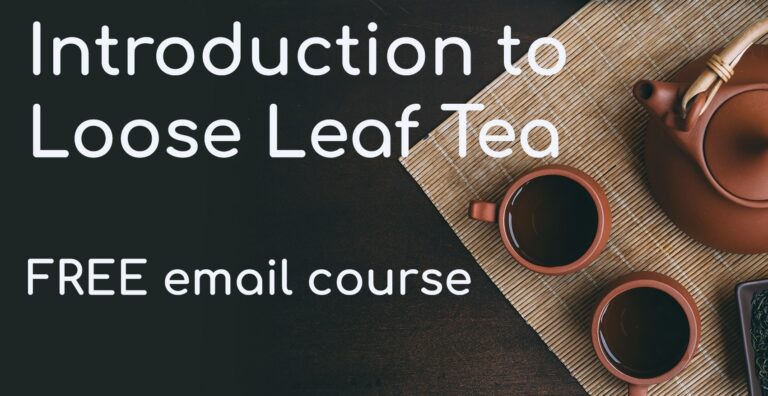
Cashless Society
Whilst we knew we wouldn’t have any trouble paying with our phones (Alipay) in Shanghai, we withdrew some cash before going to more rural places (e.g. Longjing tea village). And you know what? There was absolutely no need. Everyone – from a restaurant to a tiny street stall – absolutely EVERYONE accepted either Alipay or WeChat Pay.
Funnily enough, when we did end up paying cash in a few places (just because we had to go through the money we withdrew) it felt like a bit of inconvenience as they didn’t always have change.
I think next time we’ll just go cashless.
Religion
The majority of China is Buddhist and they have lot of beautiful Buddhist and Daoist temples around the country. Tom is particularly interested in Daoism, so we were rather excited to check out the temples and soak up the atmosphere. And yet again, our expectations were turned upside down.
Buddhism came to China from India during the Han Dynasty around 200BC. However, it seemed to me they decided to borrow more elements from India over time.
When visiting the temples we couldn’t help but notice the number of Gods you could pray to and give offerings…there was the Buddha of Wealth, the Buddha of Knowledge, the Buddha of Health. It almost felt more like…Hinduism.
And then, there was the mysterious Guan Yin…




The Iron Goddess of Mercy
You may have heard of Tie Guan Yin – one of China’s most famous oolongs (and probably one of my favourite teas). The legend goes that a poor farmer restored an old an abandoned shrine of Guan Yin – the Iron Goddess.
To thank him, she appeared in his sleep and showed him him the location of a very special tea tree. The farmer made it into a tea and called it Tie Guan Yin. The tea became incredibly popular in China and made the farmer really wealthy. Tom and I always wondered who this mysterious Goddess was. Now we know!
Similar to the West, women in China were far from being empowered and independent during the Han Dynasty. In fact they were not even allowed to talk to any man other than their husband and father. And it so happens that Buddha was a man…
So the Chinese invented a female Buddha – the Iron Goddess of Mercy. Until now, she remains one of the most popular Gods in China and you can find her depictions in many temples and shrines.


Blending Nature and Craftsmanship
When most people think about China, they usually imagine big over-populated cities and lots of factories making cheap stuff.
It’s true that China is very densely populated – Shanghai alone has over 25 million people, which is almost half of UK’s population!
However, it’s China’s rural areas that we found the most intriguing. The gorgeous hills of Longjing, the peaceful Lake of Hangzhou and the spectacular mountains of Wuyi enchanted us and captured our imagination.
What stood out the most however is that nature and human craftsmanship often co-exist in harmony. The human touch is there either to enhance and accentuate the natural beauty of the area or to seamlessly blend in.



All in all I can’t deny that we had the best time and cannot wait to explore more of this beautiful (yet slightly alien country).
I hope you find our experiences insightful.
Have you been to China and what has your experience been like?
Let me know in the comments!
Tatjana x



Teapro co-founder. Favourite tea - Long Jing Dragon Well Green Tea. Obsessed with film, photography and travelling.


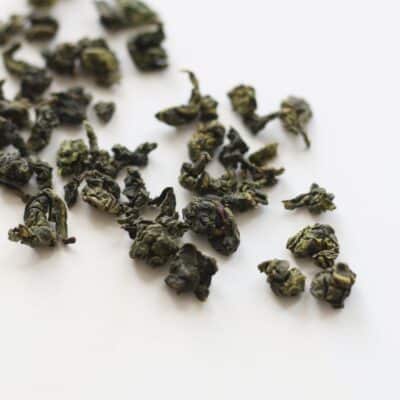


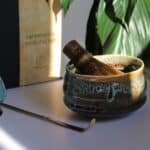







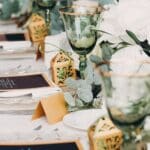
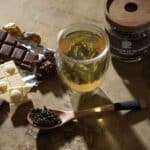
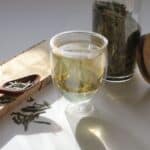















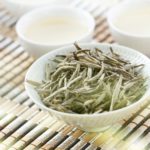
Frank Baker
Posted at 17:45h, 11 AugustGlad to hear the trip went well, next time Chengdu 🙂
Borys
Posted at 11:34h, 11 AugustWunderschöne Eindrücke von der atemberaubende Reise! junge Unternehmer in traditionsvollem Land! Toll!